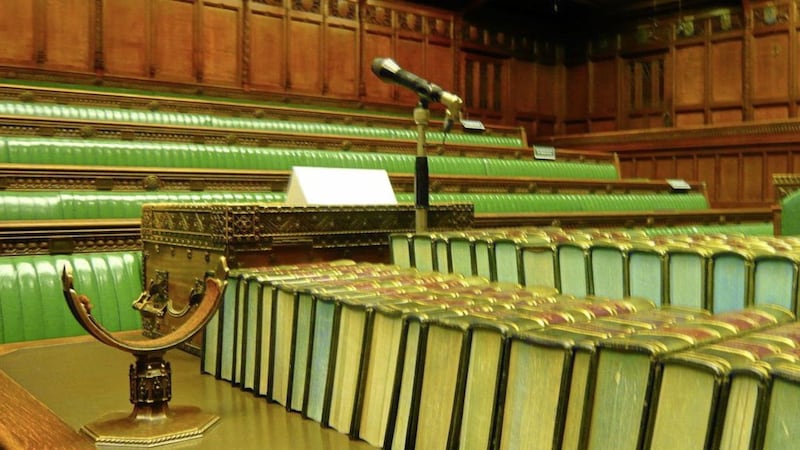Purdah begins with the calling of a general election and ends with the formation of a new government. The word itself is of Hindu origin and refers to a curtain or veil. However, its use has been extended in English to mean a period of seclusion or isolation, hence its application in terms of election campaign discretion and restraint from those in power.
In practice, purdah is supposed to prevent those in office from exploiting their position by announcing policies that could potentially, or be seen to, win votes. The guidance for Stormont civil servants and special advisers is published on the Northern Ireland Executive. It makes no reference to executive ministers.
At the end of last month, First Minister Michelle O’Neill told the assembly that publishing the long-awaited Programme for Government was going to be “very difficult” because of purdah, so there was an assumption that substantive executive business would be parked for a few weeks.
The controversy that in recent days has brought some life to an otherwise largely lacklustre campaign centres on series of executive ministers’ announcements, some with more substance than others.

Finance Minister Caoimhe Archibald announcing £300m from the June monitoring round for various departments, including health, was the most high profile, with critics arguing that she could have waited until Friday.
The Sinn Féin minister said she had given consideration to the pre-election timing but concluded that the process represented “normal and routine business of the executive”.
Her announcement almost coincided perfectly with party colleague Conor Murphy launching a consultation on proposals to strengthen employment rights legislation.
Soon afterwards, Sinn Féin Infrastructure Minister John O’Dowd said he would be recommending that the planned upgrade of the A5 road should proceed. Not so much an announcement as a signal of future intent.
It’s debatable whether Naomi Long’s potential plan to use public money to appeal the High Court’s recent ruling on controversial legislation she introduced in 2022 could be construed as electioneering but her Alliance colleague Andrew Muir’s announcement on an action plan on Lough Neagh, albeit a unilateral one, less than 48 hours before the polls open is open to greater interpretation.
I very much welcome that DfI Minister John O'Dowd intends to bring a position to the Executive which is to proceed with the A5.
— Órfhlaith Begley (@OrfhlaithBegley) July 1, 2024
Delighted to have Michelle O'Neill in Strabane today following this positive announcement. pic.twitter.com/YYZqIUO97R
Yet we’re never likely to get a comprehensive and conclusive insight into whether any of the above breached purdah and what the consequences will be. We have become accustomed to Stormont’s dysfunction that passes for normality, with rules made up as they go along.
The various announcements and clearly co-ordinated social media support looked like blatant electioneering and should therefore be regarded as such. Pretending to be adhering to the rules but breaching them, while elsewhere using purdah as a cover for inaction, shows contempt for the rules and takes the electorate for granted.
If purdah is open to such obvious abuse then it’s time to end the pretence.








